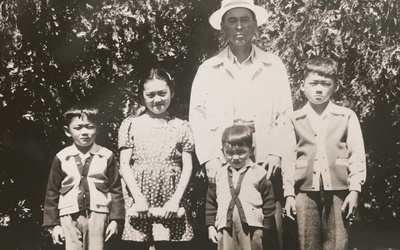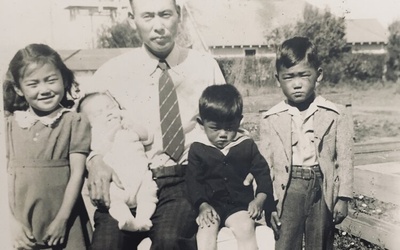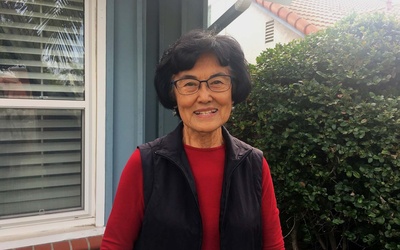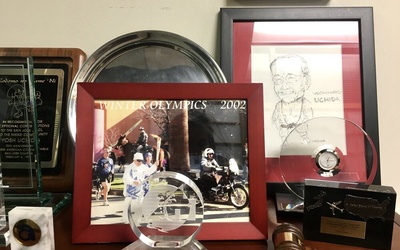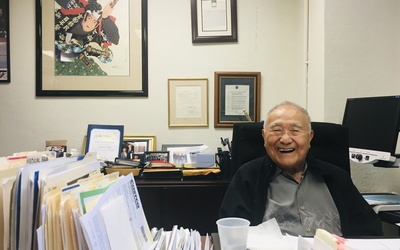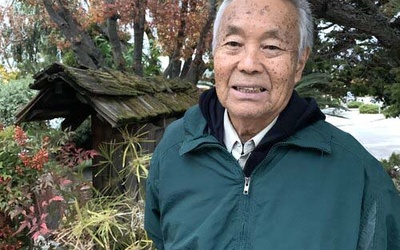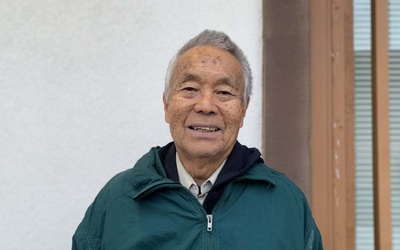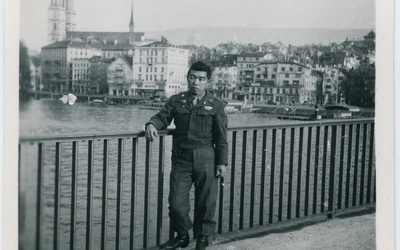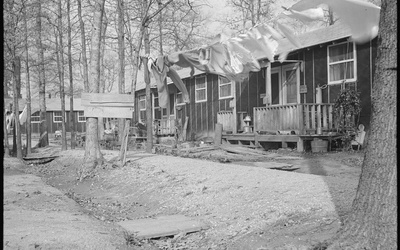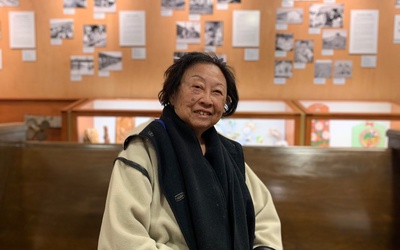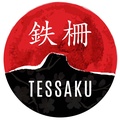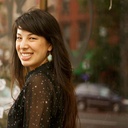
Emiko Tsuchida
@emikotsuchidaEmiko Tsuchida is freelance writer and digital marketer living in San Francisco. She has written on the representations of mixed race Asian American women and conducted interviews with some of the top Asian American women chefs. Her work has appeared in the Village Voice, the Center for Asian American Media, and the forthcoming Beiging of America series. She is the creator of Tessaku, a project that collects stories from Japanese Americans who experienced the concentration camps.
Updated December 2016
Stories from This Author
Mary Iwami - Part 3
March 7, 2021 • Emiko Tsuchida
Read Part 2 >> What details do you remember from camp when the war ended? When the war ended and Japan surrendered, Tule Lake was filled with sounds of wailing older folks, especially women sitting on the ground, crying and hitting the dirt. I can recall that sadness and felt very sorry for them. Because there were so many pro-Japanese people, I just could not think, because they’re older, how would they get along? In time the fathers were permitted …
Mary Iwami - Part 2
Feb. 28, 2021 • Emiko Tsuchida
Read Part 1 >> When Pearl Harbor happened, do you remember that day? What happened to me, I don’t recall that day at all. I think it was because we were on a farm, we didn’t even know it was being bombed, probably. But my father knew about it because the menfolk talked. But we didn’t talk about it and to me, it didn’t register anything. I didn’t know what war was or anything. What do you recall about the …
Mary Iwami - Part 1
Feb. 21, 2021 • Emiko Tsuchida
“It was a struggle because once we got to the point where we could live in that little house that they built, everything was happy. And then this war happens, and they’re taken from their comfort.” — Mary Iwami Mary (Idemoto) Iwami remembers the day her parents’ life changed permanently and seemingly in an instant, disrupting their life as farmers in the agricultural sprawl of Salinas, California. After the bombing of Pearl Harbor, FBI agents came to their home to …
Yosh Uchida - Part 2
Dec. 31, 2020 • Emiko Tsuchida
Read Part 1 >> So can you describe leaving for Arkansas? That’s where you did your basic training? Right, right. Oh yeah. There were lots of Japanese, Japanese Americans that went to Camp Robinson in Little Rock, Arkansas. And we went by train across the country. And it took us about two or three days to get there. And it was very nerve-wracking. We pulled shades down and went across the country. Really, they told you to do that? Uh …
Yosh Uchida - Part 1
Dec. 30, 2020 • Emiko Tsuchida
“I like to have my grandchildren know about it, where they’re from and what happened to their grandparents. And how hard they had to work so that they have equal rights with everybody else.” On April 1, 2020, Yosh Uchida became a centenarian, carrying with him a legacy and reputation that reflects his long life. Born to a farming family in what is now Disneyland, Yosh remembers the difficult years of growing up during the Depression, and the concern of …
Shin Mune — Part 2
Dec. 16, 2020 • Emiko Tsuchida
Read Part 1 >> Did your parents ever have any conversations with you or your siblings about what was happening? Well, see, my mother and father spoke Japanese at home. But when my mother spoke to us, maybe before the war or camp, she might have spoken to us in Japanese because Papa insisted on us speaking Japanese. But once we were in camp, it was the Japanese way. “Nihogno hanishitaku nakata.” (Didn’t want to speak Japanese). Pound your fist …
Shin Mune — Part 1
Dec. 15, 2020 • Emiko Tsuchida
“Finally, the day we received news of President Reagan signing the apology letter they had a function at the Issei Memorial building. And Papa was the only Issei there. I was so proud of him.” — Shin Mune Shin Mune is one of those rare living treasures in San Jose who come from the heritage of farming the very land upon which sprawling suburbias now sit. In fact, the 20-acre Mune farm that the family owned after the war was …
Setsuko Asano - Part 3
Nov. 27, 2020 • Emiko Tsuchida
Read Part 2 >> So how did your father get this job right after camp? He was a journalist like I said, and very good in writing Chinese characters. He was befriended by a Chinese man who was in the shrimp business. And he told him, “Come here to New Orleans.” So we went, he really befriended us. I say this really with a sense of — he was so nice to us that even when I left there because …
Setsuko Asano - Part 2
Nov. 20, 2020 • Emiko Tsuchida
Read Part 1 >> And so when you got to Rohwer, what do you remember about it? The humidity, and the mosquitoes. There were a lot of forests, really in the forest. I mean, you could you see trees all over. What did you end up doing for fun? Did you make friends there? We were all in blocks, so we were with our age group. I was active in the Girl Scouts. That's what they had for us at my …
Setsuko Asano - Part 1
Nov. 13, 2020 • Emiko Tsuchida
“My family, my parents became pro-America immediately. Their whole psyche was completely turned around.” — Setsuko Asano Setsuko (Izumi) Asano was born on the auspicious day of March 3rd, 1932 or hinamatsuri, the annual celebration of Girls Day in Japan. Perhaps it was fitting that Setsuko’s birth would fall on such a day, as she was last born in a line up of five daughters in her family, with no sons. Sets was born to two Issei parents; her mother …

